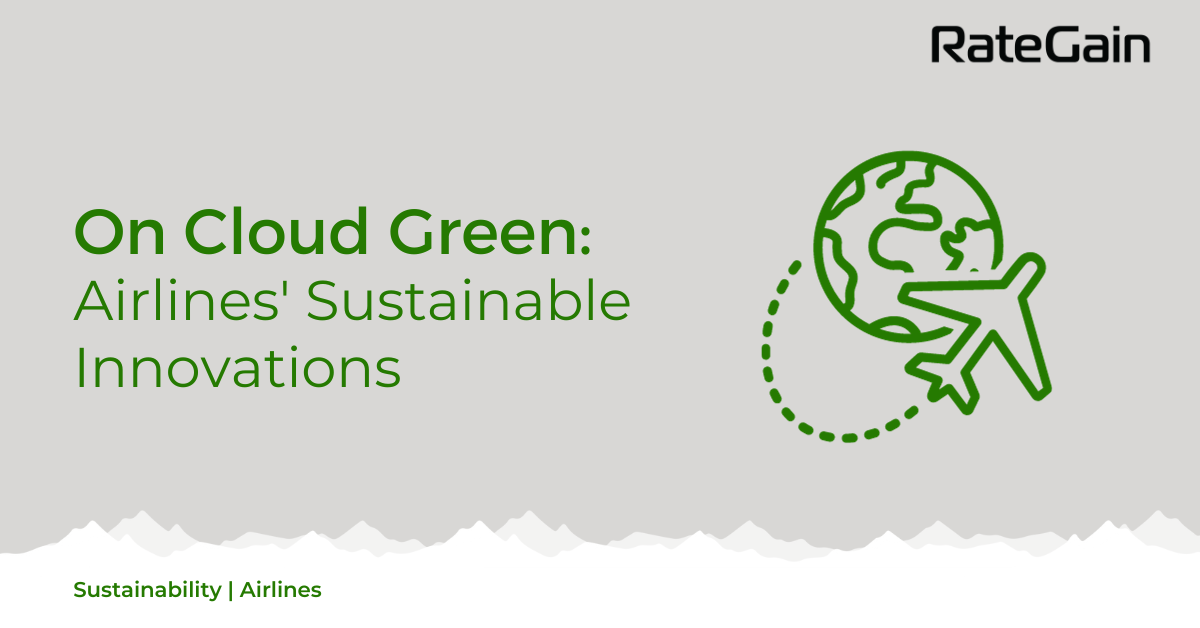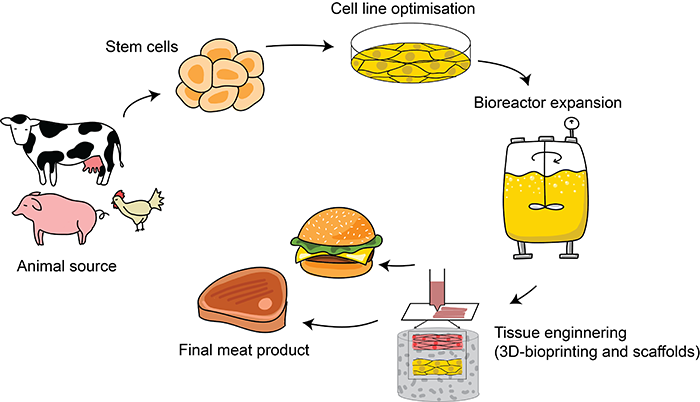Sustainable Aviation - The Future of Green Air Travel

The Rise of Eco-Awareness in Air Travel

As we take to the skies, it's hard to ignore the growing buzz around sustainable air travel. Travelers are becoming more environmentally conscious, and they're starting to demand more from their airlines.
Awareness of climate issues and eco-initiatives is influencing passengers' perceptions and choices. You're now more likely to choose an airline based on its green credentials than ever before. Airlines are taking notice, and many are responding with innovative solutions to reduce their carbon footprint.
What's Driving the Change?
One major driver is the growing awareness of the aviation industry's impact on the environment. Air travel accounts for around 2.5% of global CO2 emissions, and this number is expected to rise as air travel becomes more accessible. In response, airlines are turning to sustainable aviation fuels, carbon offsetting, and eco-friendly services to reduce their impact.
Some airlines are going the extra mile. For example, KLM Royal Dutch Airlines has launched a "Fly Responsibly" campaign, which encourages passengers to offset their carbon emissions. Other airlines, like Qantas, are exploring the use of sustainable aviation fuels made from waste materials.
Eco-Friendly Initiatives Taking Flight
- Sustainable aviation fuels (SAF) that reduce carbon emissions by up to 80%
- Carbon offsetting programs that invest in renewable energy projects
- Eco-friendly in-flight services, such as biodegradable cutlery and refillable water bottles
These initiatives might seem small, but they're a step in the right direction. As air travel continues to grow, it's clear that sustainable aviation is no longer just a niche interest – it's the future of flying.
What Drives Sustainable Air Travel Behavior
Imagine boarding a flight knowing you're not contributing to the climate crisis - sounds like a dream, right? But for many travelers, this isn't just wishful thinking. With growing environmental awareness, people are starting to demand more from their airlines.
So, what drives sustainable air travel behavior? Research shows that environmental awareness and perceived service quality are key factors in shaping travelers' trust in airlines' environmental claims. If an airline seems genuinely committed to reducing its carbon footprint and delivers on its promises, passengers are more likely to trust them. For instance, airlines like KLM have implemented "Fly Responsibly" campaigns, encouraging passengers to offset their emissions.
But what converts trust into action? Green trust and service quality are the top predictors of willingness to engage in carbon offsetting. When passengers believe an airline is genuinely eco-friendly and provides excellent service, they're more likely to shell out extra for carbon credits. Some airlines make it easy by offering options to offset emissions during booking. For example, EasyJet gives passengers the choice to offset their flight's carbon emissions.
What Travelers Are Looking For
- Visible sustainability initiatives, like solar-powered planes or eco-friendly terminals
- Low-carbon travel practices, such as optimized flight routes or carbon offsetting
Airlines that prioritize sustainability don't just do it for the planet - they also win over customers. As one industry report found, 72% of travelers consider sustainability when choosing an airline. By prioritizing transparency and eco-friendly practices, airlines can build trust with passengers and encourage sustainable travel choices.
The Role of Airlines in Sustainable Aviation

As the world shifts towards eco-friendly practices, airlines are stepping up to revolutionize the future of air travel. By embracing sustainable aviation, airlines can significantly reduce their environmental footprint while enhancing the passenger experience.
Transparency and Trust
Airlines play a crucial role in promoting sustainable aviation by being transparent about their eco-friendly initiatives. By clearly communicating their efforts to reduce emissions, airlines can build trust with passengers and encourage them to make environmentally conscious choices. For instance, airlines can provide detailed information about their sustainable aviation fuels, energy-efficient aircraft, and waste reduction programs.
Reducing Emissions
Airlines can significantly reduce emissions by adopting sustainable aviation fuels and implementing eco-friendly in-flight operations. Sustainable aviation fuels, for example, can reduce greenhouse gas emissions by up to 80%. Airlines can also reduce waste by implementing recycling programs, using biodegradable packaging, and minimizing single-use plastics.
Incentivizing Sustainable Behaviors
Airlines can motivate travelers to adopt sustainable behaviors by offering incentives such as carbon offset discounts or reward programs. For example, airlines can offer passengers the option to offset their carbon emissions by investing in renewable energy projects or reforestation programs. By rewarding passengers for making eco-friendly choices, airlines can encourage a cultural shift towards sustainable air travel.
The Impact of Sustainable Aviation on the Environment
The aviation industry is revving its engines, and not in a good way - it's currently responsible for around 2.5% of global carbon emissions, with numbers expected to triple by 2050 if we don't change course. The impact of air travel on our planet is undeniable, from contributing to climate change to polluting our skies with contrails and particulate matter.
A Step in the Right Direction
Sustainable aviation is more than just a buzzword; it's a necessity. By adopting greener practices, the aviation industry can significantly reduce its carbon footprint and contribute to achieving SDG 13: Climate Action. One way to do this is by using sustainable aviation fuels (SAF), which can reduce emissions by up to 80% compared to traditional fossil fuels.
Some airlines are already leading the charge. For example, KLM Royal Dutch Airlines has been operating a SAF-powered flight from Amsterdam to Paramaribo since 2019. Other airlines, like Qantas and British Airways, are also investing heavily in SAF research and development.
A Collective Effort
But sustainable aviation isn't just up to the airlines. It requires a collaborative effort from policymakers, travelers, and the aviation industry as a whole. Governments can incentivize the use of SAF by offering subsidies and tax breaks. Travelers can choose to fly with airlines that prioritize sustainability and offset their emissions when possible.
Here are some ways we can all contribute:
- Choose airlines with strong sustainability track records
- Offset emissions from flights when possible
- Support policies that promote sustainable aviation practices
Practical Steps Towards Sustainable Air Travel

As the aviation industry hurtles towards a more sustainable future, it's clear that getting there requires more than just a change of engines - it needs a complete overhaul of how we think about air travel. So, where do we start?
Enhance Transparent Communication and Education on Sustainability
One major hurdle to sustainable air travel is that most passengers don't know the environmental impact of their flights. Airlines can change this by being more transparent about their sustainability efforts and the carbon footprint of individual flights. For instance, some airlines already offer carbon offsetting options, allowing passengers to calculate and pay for the emissions from their journey. This not only educates travelers but also empowers them to make more sustainable choices.
Design Incentive Structures to Reduce Barriers to Sustainable Travel
Let's face it - sustainable travel options often come with a higher price tag. To combat this, airlines and travel companies can design incentive structures that make eco-friendly choices more appealing. For example, offering discounts for direct flights (which produce fewer emissions than flights with layovers) or loyalty programs that reward passengers for choosing sustainable travel options. Some airlines are already experimenting with rewarding passengers for flying on more fuel-efficient aircraft.
Promote Sustainable Aviation Fuels and Eco-Friendly Practices
Sustainable aviation fuels (SAF) are a crucial step towards reducing emissions, but they're still not widely used due to high costs and limited production. Governments and private investors can help bridge this gap by providing subsidies and investing in SAF production. Some airlines are already making strides - for instance, KLM has been using SAF on some of its flights, reducing emissions by up to 80% compared to traditional jet fuel. Onboard eco-friendly practices, such as reducing single-use plastics and implementing energy-efficient lighting, can also make a significant difference.
Some specific eco-friendly practices that airlines can adopt include:
- Reducing single-use plastics and amenities
- Implementing energy-efficient lighting and climate control systems
- Encouraging passengers to reduce their waste
The Future of Sustainable Aviation

Imagine boarding a flight that not only takes you to your dream destination but also helps reduce carbon emissions – sounds like a dream, right? Well, with sustainable aviation on the rise, this might not be too far off.
As demand for eco-friendly air travel grows, airlines and policymakers are under pressure to prioritize green practices. The good news is that some airlines are already leading the charge. Take Swedish airline SAS, for example, which has committed to reducing its carbon emissions by 50% by 2030. They're doing this by investing in more fuel-efficient aircraft and exploring sustainable aviation fuels.
Industry-Wide Impact
Sustainable aviation isn't just about reducing emissions; it's about setting a new standard for industries worldwide. By embracing green technologies and practices, the aviation sector can become a model for others to follow. Some key areas of focus include:
- Developing sustainable aviation fuels that reduce emissions by up to 80%
- Investing in electric and hybrid-electric aircraft for shorter flights
- Implementing more efficient air traffic control systems
The numbers are promising – a study by the International Air Transport Association (IATA) suggests that sustainable aviation fuels could reduce carbon emissions from air travel by up to 80%. That's a significant reduction, especially considering the aviation industry accounts for around 2.5% of global carbon emissions.
So, what's next? It's going to take collective effort from airlines, policymakers, and passengers to make sustainable aviation a reality. We're talking about a fundamental shift in how we approach air travel – one that prioritizes the health of our planet without sacrificing convenience or accessibility.


















Comments ()